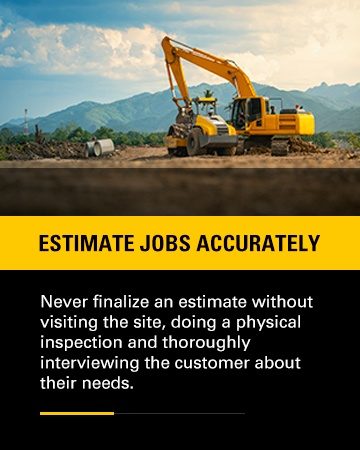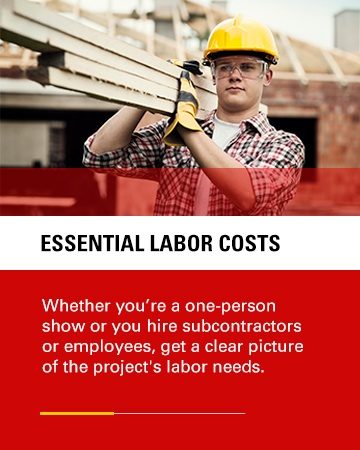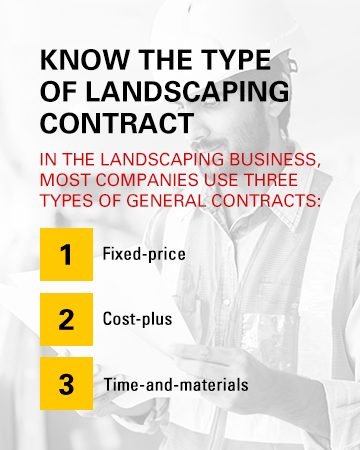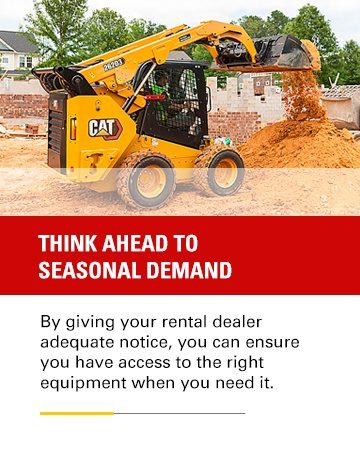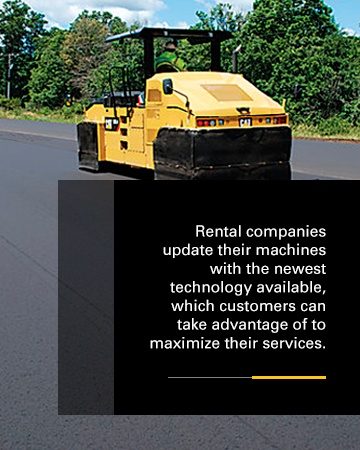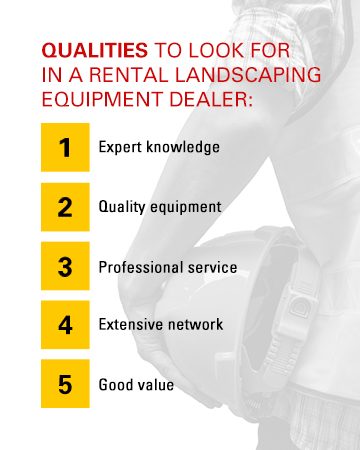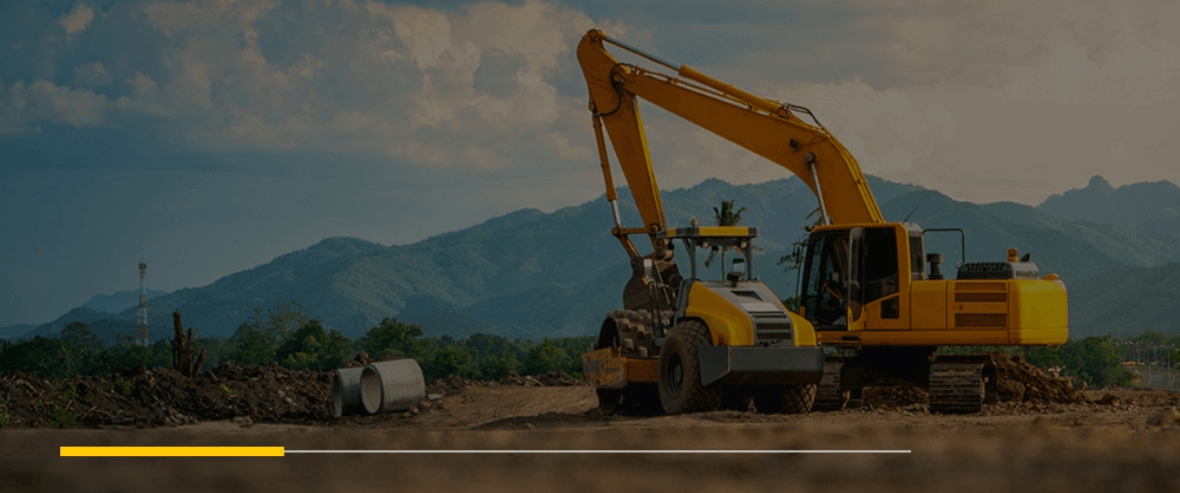
Tips for Running a Landscaping Company
Landscaping businesses across the nation provide important services in the residential, commercial and industrial sectors. From simple yard care and maintenance to extensive public works contracts, landscapers tackle various projects. No matter the size of the job, these companies rely on vital equipment and tools to accomplish their work.
For landscaping companies to be successful, business owners need to perfect some fundamental skills, from job estimating and contract negotiations to hiring the right people and finding the right suppliers. Whether you’re a seasoned professional or a brand-new startup, these tips for running a landscaping business are timeless:
Jump to a section:
What You Need to Know About Landscaping
Following these landscaping business tips can improve the odds of a successful venture:
Know Your Market
Whether you intend to start your landscaping business in the neighborhood where you live or in another part of town, it's beneficial to learn as much about your market as possible. This information will help you determine which services you should offer besides grass-cutting, such as pruning, irrigation, mulching, landscape design and gardening.
Get Certified
Earning certifications increases your industry knowledge and demonstrates your commitment to landscaping as a career. It also validates your expertise in specific landscaping/lawn care aspects. You'll gain your customers' trust and get an edge over your competitors. The National Association of Landscaping Professionals offers certification programs in lawn care management, horticulture, interior/exterior design and other areas.
Operate Like a Business
As a budding business owner, you'll need to decide whether a sole proprietorship, limited liability company (LLC) or partnership arrangement (if you plan to bring others into your venture) is the most appropriate operating structure for your new entity. You'll also have to develop a marketing plan to attract customers and become familiar with taxes, insurance and all the other aspects of running a small business.
Prepare for the Off-Season
Unless you live in a warm climate, your landscaping business probably won't be a year-round operation. You'll need to become a budgeting expert so you can stretch your funds over the winter. Many landscapers turn to snow removal to earn additional income and stay afloat during the colder months.
Use High-Quality Equipment
Your equipment will be the lifeblood of your landscaping business — you don't want to take shortcuts or choose machines that don't get the job done. If you're getting started and funds are tight, consider the benefits of renting as needed. You can acquire job-specific products that ensure the best results, and you won't have to make a significant upfront investment. You can also expand your fleet quickly to meet the increased demand when business starts booming.
Estimate Jobs Accurately
A landscaping company’s profitability hinges on the ability to estimate jobs accurately. Like landscaping, estimating is also a skill, and to run a profitable business, you need to sharpen it. Over time, you’ll get better at estimating jobs and knowing what questions to ask to get a clear picture of what each project involves.
When running a landscaping company, or any business for that matter, it’s crucial to know how to scope out your projects properly. A full understanding of what the contract entails is essential to meeting your customers’ needs and ensuring you receive fair compensation for your services.
One of the biggest mistakes you can make as a landscaping contractor is assuming you’ve estimated a project correctly because you’ve done a similar one before. To avoid underestimating the amount of work required, flesh out a detailed scope. Never finalize an estimate without visiting the site, doing a physical inspection and thoroughly interviewing the customer about their needs.
When you first meet with your prospective customer, you need to get a clear picture of exactly what they want. It’s your role as the expert and service-provider to probe deeper — ask questions that define their vision and clarify their expectations. Do they want brush clearing and removal? What about removing any large stumps or trees? Are they expecting both landscaping and hardscaping? Is there anything the customer needs to take care of before you can perform your work?
Sometimes, especially when irrigation is involved, you might need to consult a geotechnical engineer before you can begin. Building a detailed scope ahead of time ensures you know what you’re getting into and how much time it will take.
Here are some essential costs to factor into your job estimation:
- Equipment: The project details inform the equipment you need to rent or use, plus whether any special tools are required. For example, if you need to slope or grade the lot, you’ll need specific equipment and work tool attachments for this type of task.
- Materials: Consider the type and amount of materials required for the job. These include the plants, soil, fertilizer and filter cloth, as well as any gravel, stones or lumber needed for retaining walls, flower beds or pathways. For advanced projects that require irrigation, consider what sprinkler piping materials you’ll need, too.
- Labor: Whether you’re a one-person show or you hire subcontractors or employees, get a clear picture of the project's labor needs. Think of wages, payroll taxes, fees, overtime and other related expenses.
- Contingencies: Depending on the type of contract model you use, you may want to account for a 10% contingency budget. This number gives you room for cost overruns and unpredictable price fluctuations, such as changes in the cost of materials or labor.
- Outliers: Consider anything that might make a project unique, from the terrain and lot size to the season and weather. All of these factors affect how long it takes to do a job and what equipment or resources are needed.
Remember, the bigger the project, the more room for error. That’s why it’s critical to track your estimating process and refine it over time.
Know the Type of Landscaping Contract
A thorough and complete estimate is the basis for a contract. The project scope — the full account of all services to perform — is only one part of the entire agreement. The next thing you need to consider is the payment structure. A thorough contract details the terms of the arrangement, including when you’ll receive payment and how. It also defines the level of risk that each party — the contractor and the customer — is willing to take on.
In the landscaping business, most companies use three types of general contracts:
- Fixed-price: Also known as a lump-sum contract, fixed-price agreements give the customer a single quote that covers all costs. It’s a one-time payment, which is convenient and easy to manage. However, there are also risks. If you’re unfamiliar with bidding jobs, it’s easy to underestimate what a project will cost, and you could lose money on the contract or squeeze your margins.
- Cost-plus: The cost-plus contract model puts more risk on the customer than the contractor. The client agrees to cover the total costs of the project, plus the contractor’s take-home profit. Doing this protects the landscaping business and ensures the venture was lucrative.
- Time-and-materials: A third option is to share the risk with a time-and-materials contract. As a hybrid approach, the time-and-materials agreement considers the total materials cost plus the total labor costs. Some of these expenses might be fixed and known ahead of time. Others, particularly labor, might be variable and subject to change. This contract model is usually only used in cases where there’s an unclear scope of work, or the customer wants the flexibility of an open scope while service is underway.
Armed with basic information on how to form a contract, you’re ready to move on to the next steps of running a landscaping business.
Rent Your Landscaping Equipment
Whether you’re an experienced professional or you’re just getting your company off the ground, equipment rentals can be your best resource. Renting landscaping equipment ensures you always have access to the ideal machinery and tools for the job.
It’s common for landscapers to make do with the machinery they already own. While some types of core equipment can be extremely versatile and useful for most jobs, sometimes certain projects require other tools. Examples include equipment like stump grinders and brush chippers or attachments like augers or brushcutters. You can easily supplement your equipment needs by renting from a trusted supplier.
Here are some of the benefits of rental landscaping equipment:
- Improved cash flow: When you rent your landscaping equipment, you can save a lot of cash. You can avoid the upfront capital expenditure required to finance a machine. You’ll also bypass incidental expenses such as insurance, maintenance and repair costs, storage fees and transportation costs. Equipment rentals also give you a business expense to write off at tax time.
- Increased response to demand: When you rely on rental landscaping equipment, you always have access to it as you need it. Demand fluctuates, especially in the landscaping business. Take on more jobs in the summer with access to multiple machines, or accept specialized or complex projects by renting the unique work tool attachment required.
- Reduced business risk: When you’re just starting, you should minimize your risk as much as possible by avoiding accepting too much responsibility. With rentals, you reduce your financial burden and the risks that interrupt productivity. Sometimes, even well-maintained equipment can experience unexpected shutdowns. Downtime is costly to any operation. With equipment rentals, servicing or replacement is taken care of right away, getting you back up and running faster.
Think Ahead to Seasonal Demand
One of the most important tips for landscaping companies to remember is to prepare for seasonal demands. Landscaping offers a specific window of opportunity. In most regions, the industry ramps up in the spring, meaning you need to start planning in the winter.
Consider some of the items you need to address before you can accept projects. What new tools or equipment do you need to replace or repair from last year? Will you need additional labor, and if so, how much? Do you need special business insurance for work trucks or trailers or liability insurance to protect your company?
Think about any professional services you’ll need to retain, such as accounting and bookkeeping. Don’t forget to make sure your online presence is up to date. That includes placing the right contact information on all social media platforms, as well as on Google, Yelp and other directories.
If you rely on equipment rentals for your landscaping business, secure your machinery well in advance. High seasonal demand leaves many rental dealers in short supply of some of the most common rental equipment and attachments. As a result, contractors needing specific tools may have to pass up job opportunities, delay project start times or use less efficient equipment, all of which eat into a company's profitability.
You can avoid these issues by simply planning ahead. Think about what equipment you’ll need and for how long. Secure a rental agreement several weeks before you plan to open for business. By giving your rental dealer adequate notice, you can ensure you have access to the right equipment when you need it. Don't wait until the last minute to gather your supplies. You can remain competitive throughout the busy season if you move proactively.
Take Advantage of the Latest Technology
Equipment technology is constantly evolving to improve productivity, safety and profitability. One of the greatest benefits of renting your landscaping equipment is that you’ll have access to the latest equipment technology. Rental companies update their machines with the newest technology available, which customers can take advantage of to maximize their services. This means that when you rent machinery, you never have to worry about it being obsolete.
With Cat® equipment, in particular, you can use Cat technology models that give you insight into the machines, showing you how to improve operations so you can work smarter, not harder. The latest technology also gives you an edge over your competition, allowing you to operate more efficiently and do more jobs.
An example of the technology you get from Cat equipment is Cat Grade — a control system for improving grading efficiency. If you need to clear, slope or grade lots, the Grade model uses guided technology to help you perform with better accuracy. The result is faster production with less rework, saving you time and money.
Cat technology also includes safety programs like the Detect model, which helps operators stay vigilant. Using cameras and other sensors, Detect technology alerts operators to surrounding hazards and even identifies distracted behavior or fatigue. With Cat technology, you can reduce the risk of accidents while improving job site performance.
Prioritize Job Site Safety
Whether you have one or a hundred employees, safety is always the priority. Landscaping work can present many hazards, especially when heavy equipment is in the equation. To protect you and your workers, always follow the Occupational Safety and Health Administration (OSHA) standards for landscaping and horticultural services. Here are our top landscaping safety tips:
- Wear proper PPE: All landscapers must meet OSHA standards, which includes wearing the correct personal protective equipment (PPE). Helmets, gloves, steel toe boots, hearing protection and safety glasses all keep you healthy and safe. They protect you in an accident and can even save lives.
- Be aware of your surroundings: It’s easy to get lost in your task while landscaping. But when working around heavy equipment and loud machinery, it’s imperative to stay vigilant. When performing roadside landscaping, be aware of motor vehicles. Always take the proper precautions, including wearing high-visibility vests and using traffic cones or other roadside safety measures.
- Acclimatize to the weather: Working in the heat during summer months puts landscapers at risk of heat stress. From heat rash and cramps to heat exhaustion or heat stroke, many hazards are involved in working outdoors during the summer. Landscapers should slowly acclimatize to the heat over a few weeks to prevent heat illness.
- Take breaks: When working outdoors, be sure that employees are taking regular breaks. During breaks, rest in the shade and take in plenty of fluids — one cup of water every 15 minutes. Staying hydrated prevents heat stress by replenishing the fluids you sweat out.
- Sharpen your tools: Lawn care tools like shears, shovels, rakes or other blades should remain in good working condition. As blades dull, they become harder to use, requiring you or your employees to exert more force. The more force required, the more likely workers will face issues like muscle pulls and strains, repetitive stress injuries or exhaustion.
Hire the Right People
If your business has grown to the point where it’s more than you can handle on your own, then it’s time to bring on the right people to help you. Take your time finding the right people for the job. Never hire someone out of desperation because you want to fulfill a contract. Instead, think about the qualities you want in an employee and find individuals who align with your work style.
Next, think about what aspects of your work you need help with the most. You might benefit from more landscaping assistants to do the physical labor like mowing, digging and performing installations. Hiring people for these tasks frees you to spend time developing your business and managing customers. Or you might need administrative support — people to help you with office work while you perform services for customers.
Another option is to hire workers on a contract basis, which makes them subcontractors. This is often a better option for smaller businesses that don’t want to hire full-time employees, especially when performing seasonal work. Before hiring anyone, speak with an accountant or lawyer who can advise you of the various tax implications involved in hiring employees vs. contractors.
Partner With the Right Rental Company
Part of doing business is knowing you need to rely on others to deliver services. That’s why it’s crucial to select your suppliers wisely. Your reputation depends on your ability to deliver equipment and materials on time so you can complete the project effectively. Every partnership is important, but the relationship a landscaping business builds with its equipment rental dealer is critical. Partnering with the right rental company will ensure your needs are consistently met.
Here are some qualities to look for in a rental landscaping equipment dealer:
- Expert knowledge: Choose a dealer with vast industry experience. A reputable dealer employs representatives with extensive product knowledge. They can help you compare different machine types and models and make proper recommendations about which rental equipment best suits your needs.
- Quality equipment: The machinery you rent should be of the highest quality possible. When you rent equipment, you want a guarantee that it will operate at peak performance. Otherwise, you’d be investing in the equipment yourself. A reputable dealer ensures their machines are well-maintained and properly serviced after every use. Their products should be safe, reliable and efficient.
- Professional service: An excellent rental dealer prides themselves on their professional image. They want to earn your trust, and they achieve this through above-and-beyond customer service. You want to know that when you rent equipment, your agreement will be backed by 100% support with knowledgeable and helpful people ready to assist. Whether you have questions about equipment operation or need timely on-site servicing, your rental dealer must be able to respond quickly.
- Extensive network: Landscaping is a competitive business, and you need the right equipment at the right time. Rental dealers with an extensive network are much more likely to have the machinery you want when you need it. When dealers have multiple locations, they have a much larger inventory to choose from. If one location doesn’t have the model you need, another one likely will, and the dealer will help you locate it.
- Good value: As with any professional service, you want to make sure your rental dealer provides good value. Rental rates should be competitive, but they should also include value-added services like parts replacements or operator training. You want to know you’re getting the most out of your rental contract, and a reputable dealer will be happy to provide these features.
The Cat Rental Store is proud to tick these boxes for you. Landscaping businesses needing seasonal equipment rentals can trust The Cat Rental Store to deliver expert advice, high-performing equipment and consistent value with each rental.
Get Landscaping Equipment Rentals From The Cat® Rental Store
At The Cat Rental Store, we’re proud to work with landscaping business owners across the country, supporting them with their rental needs. With a vast distribution network, you’ll always have access to the equipment and work tool attachments you need — when you need them.
With decades of industry experience, our knowledgeable staff at your local Cat Rental Store can advise you on the right model and help you select the best equipment for the job. We are committed to superior customer service, so you can rest assured you’ll have the support you need to keep you working productively.
If you have questions about rental landscaping equipment, contact The Cat Rental Store. Call us at 1-800-RENT-CAT or stop by a location near you.
